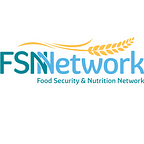10 Tips for RFSA Staff Considering a Conference
Lessons Learned from a Water and Health Conference
By: Alazar Negash, Tinotenda Muvuti, Yves Rasolofohery, Delilah Takawira, and Rafaramalala Volanarisoa
The PRO-WASH & SCALE Award brought together experts from various resilience food security activities (RFSAs) to the UNC Water and Health Conference, and now they’re sharing how the experience strengthened their work and connections. Learn what it takes to bring RFSA work into the spotlight at a conference.
“No problem in the world can be addressed by only one sector or expert. A comprehensive solution must factor in gender equity, environmental risks, health, and Indigenous people. Ensuring that we have a mechanism for working in collaboration across-sectors is the most important step we can take to solving any problem.” — Rafa
Meet the Presenters
Rafa: I am the Deputy Chief of Party with CRS for the new Tudittale RFSA in the Democratic Republic of the Congo (DRC). My work highlights the need to build women’s engagement, agency, and capacity in community activities, such as water management committees. Increasing women’s engagement in community work requires additional support, such as equipping them with tools and skills to build their confidence. At the conference, I presented a research poster on the Budikadidi RFSA in the DRC as the RFSA Health, Nutrition and WASH Lead.
Yves: I am a WASH Specialist for ADRA and support the FIOVANA RFSA in Madagascar. My work focuses on pathogen transmission routes. We presented how we informed the community so they could adapt the research findings to their local context and stop the transmission of pathogens to children under 2 years old.
Alazar: I am the WASH Lead for the SPIR II RFSA in Ethiopia with World Vision. My work focuses on transformative WASH. We are examining a comprehensive intervention package that significantly improves both indoor and outdoor home environments in order to intervene in all key fecal contamination pathways during pregnancy and breastfeeding.
Tino: I am a WASH Advisor for ADRA and support many activities, including the FIOVANA RFSA in Madagascar. I presented how animal feces poses a serious threat to children in southeastern Madagascar. Our work highlights the need for creative approaches that will elevate the revulsion for animal feces to the same level as human feces, given that they can contain even higher concentrations of pathogens.
Delilah: I am the Social and Behavior Change Technical Advisor for Takunda RFSA in Zimbabwe. My work focuses on understanding the individual, social, and structural barriers affecting the food security, income-earning capacity, nutrition, WASH, and resilience of individuals, households, and communities. This involves applying human-centered design — amongst other techniques — to improve programs, products, and systems in WASH and other sectors. We engage end-users in co-creating solutions to their challenges to improve ownership and sustainability of interventions.
“Each day of the conference, I was repeatedly struck by the sheer volume of research being disseminated — literally hundreds of papers, posters, presentations, and discussions on hundreds of WASH issues. Although there were differences in approach, methods, and contextual nuances, it was clear that the WASH challenges faced by people across the globe are strikingly similar. For me, this realisation underscores the importance of platforms that facilitate the exchange of knowledge and cross-learning among WASH researchers and practitioners.” — Tino
Why should other RFSA staff consider participating in similar conferences?
- Sharing lessons and experiences from your day-to-day work and results from applied research can influence policy, new products, and future program design to make them more responsive to the actual needs on the ground. (Delilah)
- You will learn from your peers, which will widen your perspective and help you find solutions to issues that most RFSA face. (Rafa)
- You can highlight your achievements and raise the profile of RFSA projects. (Yves)
- You bring local knowledge and perspectives that add contextual richness that you can share with fellow researchers at the forefront of similar work and the donors who fund it. (Tino)
- You can learn from the high-level lessons from other multilayer programmatic interventions. (Alazar)
“I was very impressed by the wide range of stakeholders the conference brings together — from students to donors and government officials. My key learnings were that other developing countries receive more funding for WASH programming than Zimbabwe and RFSAs like Takunda have a lot to share that can benefit others.” — Delilah
10 Tips for RFSA Staff Who Want to Present at a Conference
- Take the initiative–be bold and daring to disseminate any learning worth sharing, whether through posters, verbal presentations, or side events. (Alazar)
- Be concise and simple when you present research — do not use jargon. Try to summarize your research results into one sentence, focusing on how it can be translated into real action. (Rafa)
- Implement a learning approach in your work to help you identify key lessons and experiences to share with others. (Delilah)
- Highlight what is specific about your RFSA. (Yves)
- Have confidence in your contributions! It may not feel like it, but you have something to offer. (Tino)
- Have several visual aids to capture participants’ attention. (Yves)
- No products are too small or too inferior to be presented in global fora. (Delilah)
- Plan early and include developing a general abstract as part of your RFSA learning activity plan so you can be ready to tailor it when a conference calls for it. (Tino)
- Talk about your new evidence, approaches, best practices, and success stories. (Yves)
- Don’t be caught off-guard if people take an interest in your work. Have a concise elevator pitch and consider bringing printed handouts for distribution. (Tino)
“I would like to thank all the open-minded scholars who shared their knowledge and welcomed collaboration. Coming together was just the beginning — by staying together, we’ll achieve tremendous success.” — Alazar
